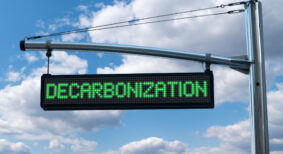KingSett Capital has emerged as the global leader among 59 mixed office-residential real estate portfolios benchmarked in the 2022 GRESB survey of environmental, social and governance (ESG) practices and performance. This year, 1,820 entities worldwide, including private companies, property funds and REITs, reported to the annual assessment, which considers 60 indicators across 14 components of activity.
The GRESB real estate database now captures 150,000 individual assets in 74 countries collectively valued at about USD $7 trillion. The total number of respondents has increased by more than 237 per cent during the past decade, while average scores for those reporting over that entire period have climbed from a range of 45 to 54 in 2013 up to 81 to 85 in 2022.
This is KingSett’s eighth year of GRESB participation and the second consecutive year it has been atop the office-residential category. The company also attained a five-star ranking for the fifth consecutive year, meaning that its GRESB score is in the top quintile (20 per cent) of the total field of participants.
“We are grateful to our people, partners and customers who helped make this achievement possible,” says Jon Love, chief executive officer of KingSett Capital. “We are committed to our ESG strategy and continue to expand our efforts and ambitions, seeking to make an impact and build long-term value for all our stakeholders and communities.”
Other notable Canadian results include: QuadReal Property Group, which posted the top score in the Americas region for diversified portfolios with office, retail, industrial and residential properties; and Oxford Properties Group, Triovest and BentallGreenOak, which were all Americas region leaders in the separate development benchmark for ESG attributes in design, construction and renovation.
The five companies are veterans of the GRESB assessment, witnessing a steadily growing contingent of Canadian participants. Enrollment has nearly doubled over the course of the COVID-19 pandemic — climbing from 30 in 2019 to 59 reporting entities this year, and with 44 per cent year-over-year growth from 2021 to 2022.
That’s a trend throughout the Americas region, as the United States gained 79 new respondents for a 26 per cent growth rate, and Brazil recorded a 170 per cent jump from 7 to 19 entities. The influx is also deemed a major cause for a drop-off in the region’s average GREB score, which dipped to 72, down from 73 in 2021.
“The first year of reporting to GRESB can be extremely challenging,” Reid Morgan, manager, member relations, for GRESB’s Americas region, observed earlier this week during an online summary of the results. “Another critical contributing factor to lower overall scores this year was the significant change in how buildings were used in 2021 as compared to 2020. With workers starting to return to the office and businesses reopening, we saw a decrease in like-for-like scores in the energy, water and GHG emissions aspects.”
Still the data bodes optimistically for the future. This year, the first-year reporters collectively posted an average score of 58.3, while the average score for entities in their second year of participation was 68. At five or more years of participation, the average scores hit or surpassed 81.
Across the board, the Americas average score was the lowest of the four most represented world regions and also underperformed the global average of 74. Oceania, encompassing 108 portfolios in Australia and New Zealand, again retained the title as top-performing region after achieving an average score of 81. Asia follows with 78 and then Europe with 73. Seven African portfolios — four in South Africa and three in Kenya — also reported this year.
Oceania’s 10 first-time reporters achieved a collective average score of 70, while average scores surpassed 85 for entities with more than five years of GRESB participation. Asia added 50 new participants in 2022, for a 21 per cent growth rate, with first-year reporters likewise posting an average score of 70.
Europe continues to hold an influential sway over the global average with its 907 reporting entities accounting for about of the total benchmark this year. However, its ranks are growing at a slower pace than in the Americas — expanding by 15.6 per cent from 2021. Drilling down to individual countries, Germany picked up 26 new participants, pushing its count above 100 and representing a 34 per cent increase, while the United Kingdom added seven new participants, for a total of 264 and national growth rate of 2.7 per cent.
Meanwhile, the Americas bring a smaller number of larger portfolios to the mix. Its 477 reporting entities account for 26 per cent of global participation and 43 per cent of the gross asset value — equating to about USD $3 trillion — of all participants’ holdings.






